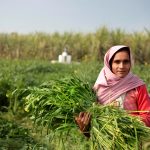In 2005, India’s Parliament passed the Mahatma Gandhi National Rural Employment Guarantee Act, a landmark in social protection legislation for the country. The Act moved employment into the domain of legally enforceable rights for a population no less than 120 million, making it the largest work/welfare programme in the world. Since 2009, the eponymous anti-poverty…
Employment
Globalization and the Gender Gap
The third Millennium Development Goal is to “Promote gender equality and empower women.” This goal is given some urgency by the fact that significant gender gaps remain, especially in Low-Income countries (LICs). The World Bank’s 2012 World Development Report, “Gender Equality and Development,” stressed that in the LICs women lag behind men in a number…
Girls Empowered by Microfranchising
Integrating young adults into the formal labour market is a major challenge facing developing nations, particularly in Africa (World Bank 2007). High levels of unemployment, especially among youth, have led many policymakers to advocate microfinance (cf Yunus 1999) and other forms of credit market expansion aimed at promoting entrepreneurship. However, empirical evidence on the overall…
Structural Change, International Trade, and Labour Markets in a Low-Income Country
The project consists of two parts. The first part of the project seeks to understand the relationship between trade, employment, and productivity in a low-income country setting. This topic is particularly timely in the context of recent bilateral free trade agreements and international trade negotiations, which aim to improve the trading prospects of low-income countries. …
Addressing Gender Inequalities in Earnings and Productivity in Sub-Saharan Africa through Innovative Approaches
Youth employment and micro, small and medium sized enterprise (MSME) development are often in the public debate. Governments in Africa have introduced a number of programmes to promote employment via these mechanisms, but the understanding of which interventions are most effective and for which types of individuals they have an impact is limited. Furthermore, women…




